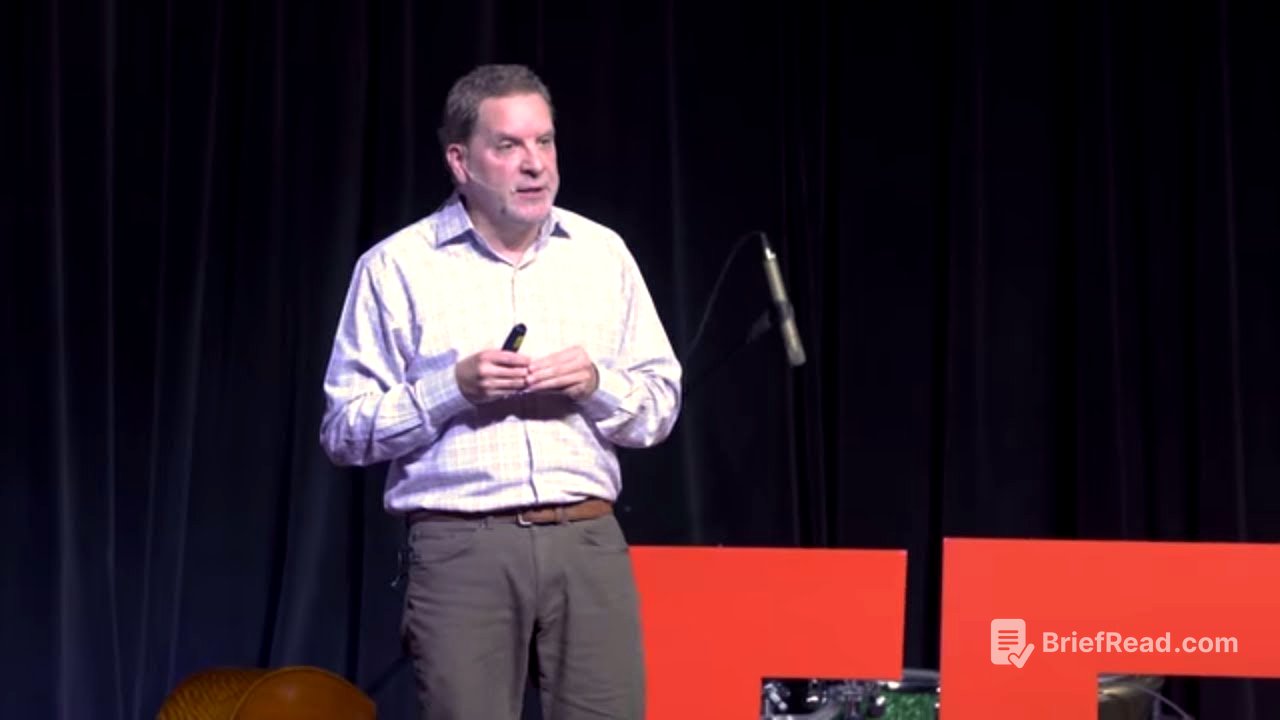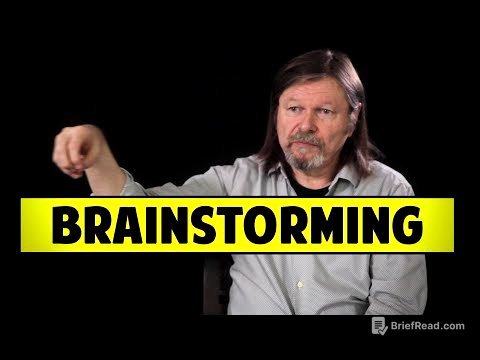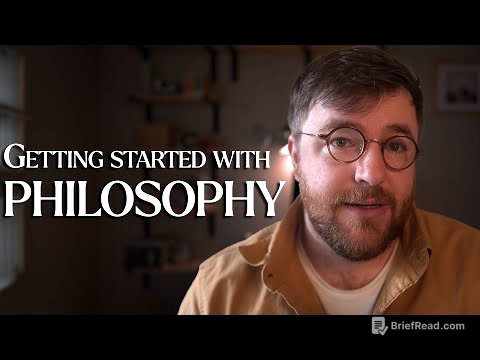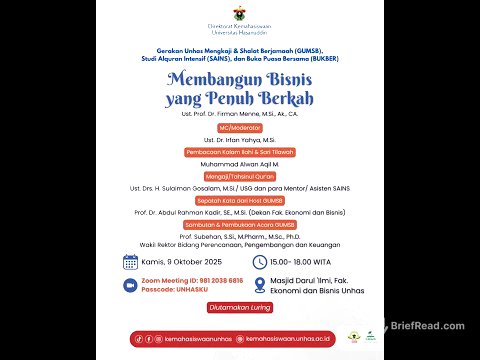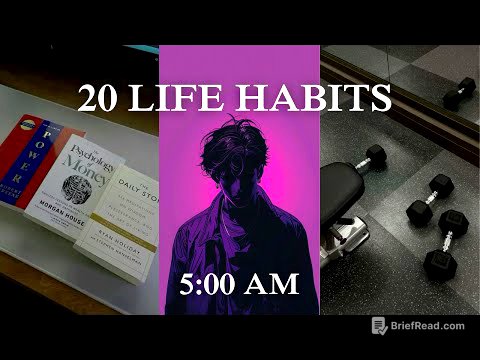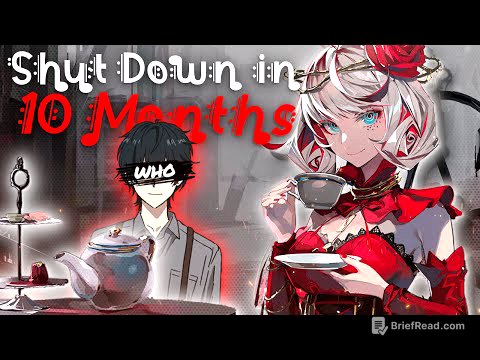TLDR;
Will Sparks discusses the importance of self-awareness, which includes understanding both strengths and weaknesses (the "shadow"). He shares a personal experience with Dr. Jerry Harvey, who helped him recognize his own flaws and codependent behaviors during a difficult time in his life. Sparks highlights three key takeaways: true self-awareness is uncomfortable but necessary for growth, providing constructive feedback is a moral obligation, and personal transformation requires facing one's shadow. He encourages the audience to identify and embrace their own "F in life" to unlock their full potential.
- Self-awareness requires understanding both strengths and weaknesses.
- Constructive feedback is essential for personal growth.
- Facing one's shadow is necessary for transformation.
Introduction: The Power of Self-Awareness [0:05]
Will Sparks introduces the concept of self-awareness as critical for personal effectiveness, reaching one's potential, and improving relationships. He argues that modern culture narrowly defines self-awareness by focusing only on strengths, which he refers to as living in a "strength finders culture". Sparks contends that true self-awareness involves understanding one's weaknesses, or "darkness," in addition to celebrating one's "light." He then sets the stage to share a personal experience that significantly increased his self-awareness.
Encounter with Dr. Jerry Harvey [1:23]
Sparks recounts his experience as a doctoral student under Dr. Jerry B. Harvey, known for the "Abilene Paradox," which describes a follow-the-leader syndrome in organizations where individuals self-censor their true thoughts. Eager to study under Harvey, Sparks, at 27, was confident despite undergoing a divorce, which he intended to compartmentalize. In Dr. Harvey's class, Sparks wrote a paper analyzing the codependency in his failed marriage from his perspective.
The Confrontation [3:45]
Sparks describes the day Dr. Harvey handed back the final grades. Instead of receiving his grade with the rest of the class, Sparks was told he needed to see Dr. Harvey in his office. During the subsequent meeting, Dr. Harvey challenged Sparks to reflect on himself rather than focusing on his paper or the class. After Sparks initially deflects, Dr. Harvey directly confronts him about his divorce, leading to a painful but transformative conversation.
The "A" and the "F" in Life [7:22]
Dr. Harvey surprises Sparks by giving him an "A" on his paper, praising his emotional connection to the subject matter and his scholarly research. However, this is followed by the "bad news": an "F in life." Dr. Harvey explains that while Sparks accurately assessed his ex-wife's codependency, he failed to recognize his own role in creating the dysfunctional dynamic. Dr. Harvey confronts Sparks about his need to always be right and give unsolicited advice, ultimately stating that Sparks is trying to manipulate him into feeling sorry for him.
Unsolicited Feedback and Dismissal [11:31]
Dr. Harvey continues to provide feedback, predicting that Sparks won't graduate due to a "South Carolina chip on [his] shoulder" that will prevent him from absorbing constructive criticism. However, he promises that if Sparks uses his time in the program to understand why he acted the way he did in his marriage, he will gain valuable insight, regardless of whether he graduates. Dr. Harvey then dismisses Sparks by turning his back and resuming reading the Bible, humming "Amazing Grace" as Sparks leaves.
Initial Reaction and Epiphany [12:50]
Sparks initially seeks validation from friends, who agree that Dr. Harvey was a hypocrite. However, the next morning, Sparks has an epiphany and realizes that Dr. Harvey was right. He acknowledges that Dr. Harvey knew him better in a few months than he knew himself. This realization marks a defining moment for Sparks, and the conversation with Dr. Harvey stays with him to this day.
Reconciliation and Reflection [14:16]
Sparks shares that he and Dr. Harvey corresponded frequently until Dr. Harvey's death in 2015. Sparks expressed his appreciation for the invaluable gift Dr. Harvey had given him. In response, Dr. Harvey downplayed his role, stating that he takes no credit for Sparks' growth.
Three Takeaways [14:52]
Sparks presents three key takeaways from his experience:
- True self-awareness is uncomfortable and disruptive, requiring a willingness to explore the "deep end" rather than staying in the "shallow end" of validation.
- There is a moral obligation to provide constructive, developmental feedback to others, even if it is difficult or uncomfortable.
- Personal transformation requires the courage to face one's shadow and acknowledge both the dark and light aspects of oneself.
Conclusion: Embracing Your "F in Life" [17:27]
Sparks concludes by asking the audience to consider their own "F in life" – the difficult truth they may be avoiding. He challenges them to acknowledge and embrace their shadows, suggesting that true growth and liberation are available when they have the courage to face their imperfections.
